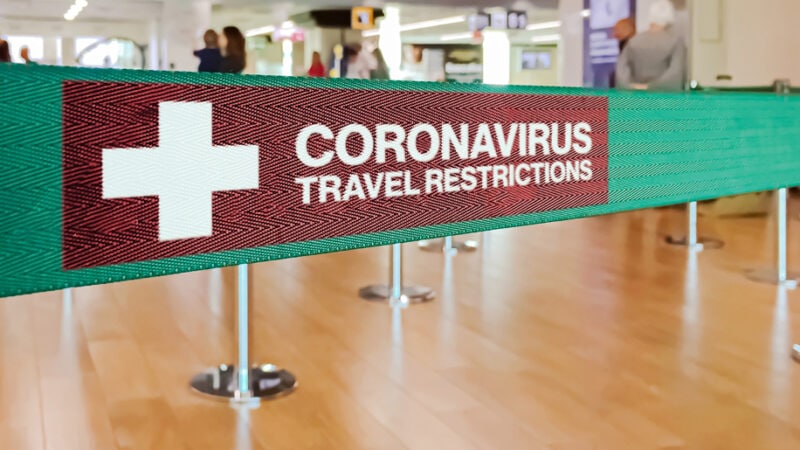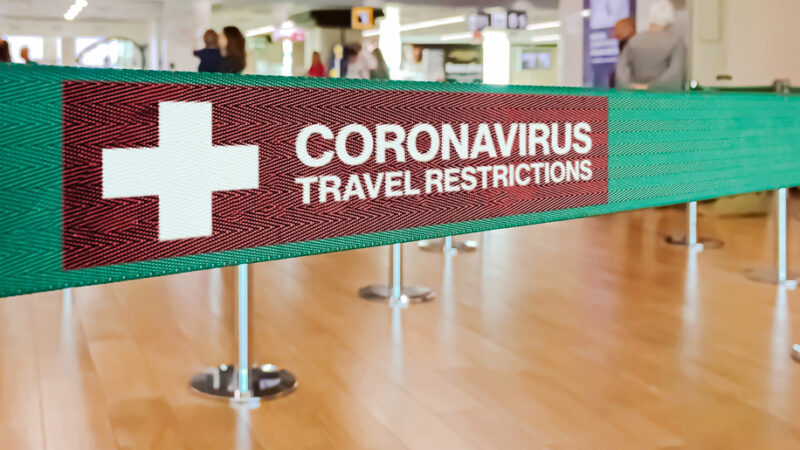Pandemic Travel Bans Continue to Drag Global Growth
Study finds restrictions enacted at the beginning of the pandemic are both persistent and inconsistent, with no end in sight
August 22, 2021


A year and a half after the COVID-19 pandemic was officially declared, travel bans remain in place around the globe. A new report from The Conference Board examines the cascading costs of these measures.
With nearly every economy still mandating some form of restrictions on foreign travelers, the travel services industry – gutted by sudden border closures in 2020 – may only recover to 50 percent of 2019 levels by the end of 2021.
With 334 million people worldwide directly dependent on the travel and tourism sector, how soon and by whom travel bans get lifted will have short term ramifications and far beyond to long-term prospects for global growth and trade.
According to “Trade Risks: Travel Bans,” a full recovery of travel services would add 0.7 percentage points to 2021 global GDP, lifting the 5.3 percent growth currently predicted by The Conference Board to a full 6.0 percent. On the other hand, if travel bans persist or even tighten, current consensus growth forecasts may be too optimistic.
“For much of the world, the travel bans enacted as emergency measures in 2020 remain in place,” said Dana Peterson, chief economist of The Conference Board. “The continued emergence of new virus variants and stubborn vaccination challenges – whether due to supply, logistics or hesitancy – are understandably prompting governments to extend policies that heavily restrict the movement of people across borders.
However, Peterson explains, “With no certain end in sight, pandemic-era travel bans risk transforming longstanding expectations around the free movement of goods, services, cash, and people – and becoming a perpetual headwind holding back global economic potential.”
Among the report’s key findings:
- Business travel is down dramatically and may be slow to return. Companies are cutting costs by forgoing travel as ongoing pandemic restrictions appear to be accelerating a long-term trend toward virtual meetings. Over the long term, this shift may threaten industries that thrive on in-person connections that drive innovation and/or sales and customer relationships.
- Travel bans on foreign tourism threaten economies globally. Tourist spending, which collapsed worldwide in 2020. accounts for 87 percent of total global exports of travel services. The ongoing negative impacts of this collapse extend beyond tourist industries directly affected by travel bans to adjacent sectors like entertainment, amusement and food services, as well as national and regional governments dependent on tax revenues from visitors.
Tourist hubs in Asia and the Caribbean have felt the brunt of these challenges, but even some of the world’s largest and richest economies – including Germany, Italy, Mexico and Hong Kong – face outsized exposures to continued restrictions.
- Travel ban uncertainty creates different glide paths to recovery for travel and tourism, and consequently for global GDP growth as a whole. The path to recovery for the sector remains uncertain given the tangle of conflicting restrictions on foreign visitors around the world.
Ideally, international people flows would return to pre-pandemic levels by the end of 2021 or early next year. However, as coronavirus variants spread, such a return to normal is highly dependent on how much and when individual governments roll back travel bans, and how quickly people regain confidence in the safety and reliability of international travel.
- Travel bans threaten to sour relations between economies that choose to reopen borders quickly and those that do not. Even before the pandemic, rising geopolitical tensions were already fueling a surge in tariffs, sanctions and protectionist sentiments.
As governments choose different paths to reopening their borders, travel restrictions may become the next front for international trade friction and another prime risk to the future of globalization.
Founded in 1916, the Conference Board, Inc. is a non-partisan, non-profit, member-driven think tank that delivers analysis and insights into what lies ahead for business and the world economy. It counts over 1,000 public and private corporations and other organizations in 60 countries as members.




